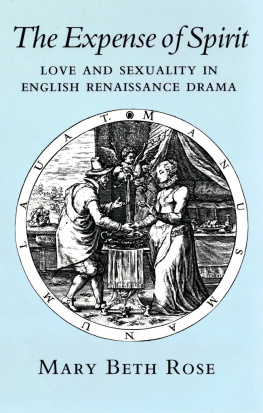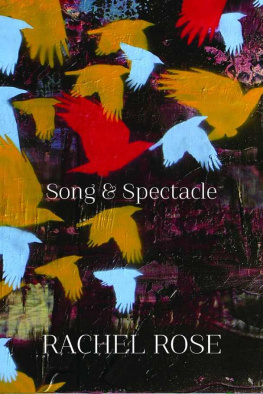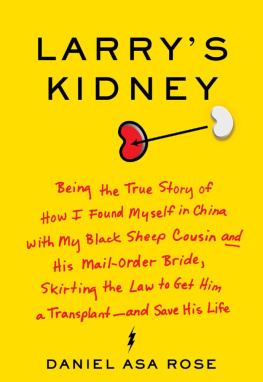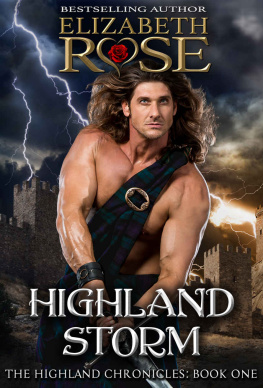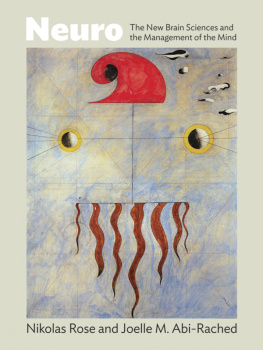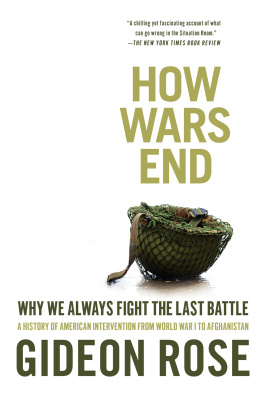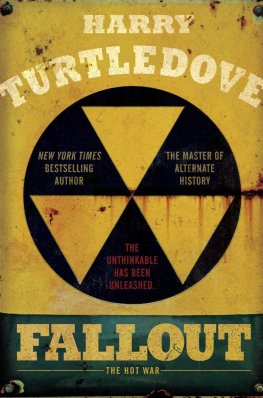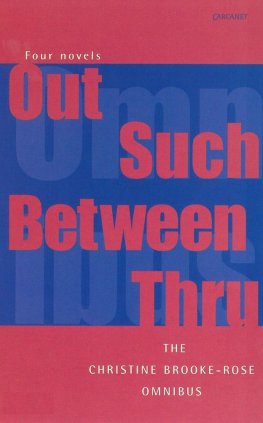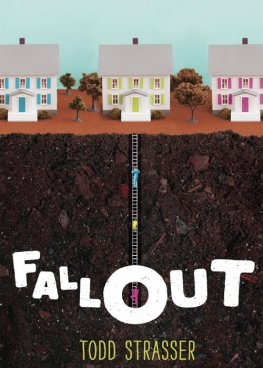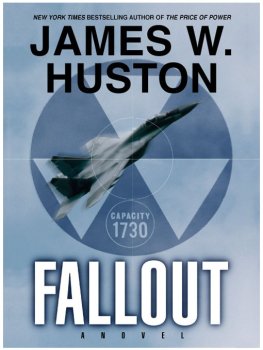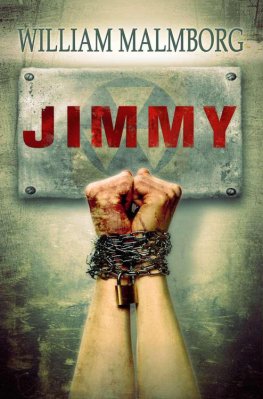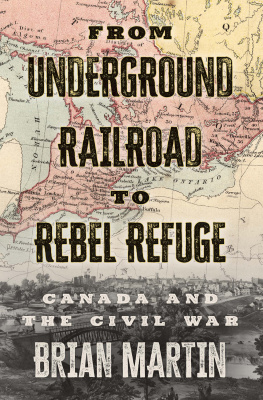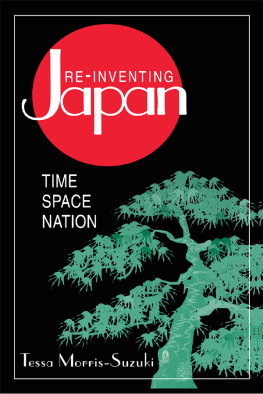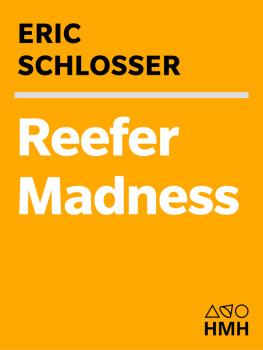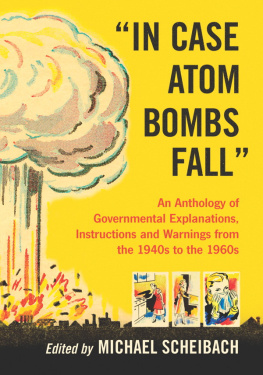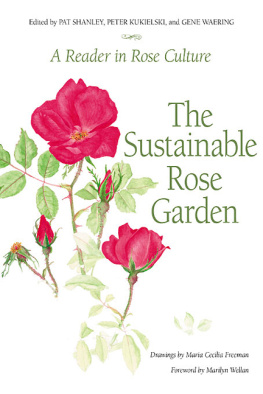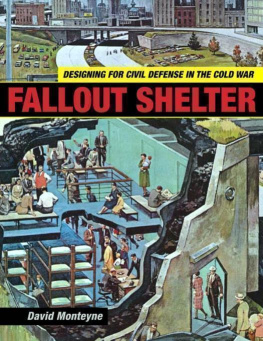Rose - One nation underground: the fallout shelter in American culture
Here you can read online Rose - One nation underground: the fallout shelter in American culture full text of the book (entire story) in english for free. Download pdf and epub, get meaning, cover and reviews about this ebook. City: New York;United States, year: 2004;2001, publisher: New York University Press, genre: Politics. Description of the work, (preface) as well as reviews are available. Best literature library LitArk.com created for fans of good reading and offers a wide selection of genres:
Romance novel
Science fiction
Adventure
Detective
Science
History
Home and family
Prose
Art
Politics
Computer
Non-fiction
Religion
Business
Children
Humor
Choose a favorite category and find really read worthwhile books. Enjoy immersion in the world of imagination, feel the emotions of the characters or learn something new for yourself, make an fascinating discovery.

- Book:One nation underground: the fallout shelter in American culture
- Author:
- Publisher:New York University Press
- Genre:
- Year:2004;2001
- City:New York;United States
- Rating:4 / 5
- Favourites:Add to favourites
- Your mark:
- 80
- 1
- 2
- 3
- 4
- 5
One nation underground: the fallout shelter in American culture: summary, description and annotation
We offer to read an annotation, description, summary or preface (depends on what the author of the book "One nation underground: the fallout shelter in American culture" wrote himself). If you haven't found the necessary information about the book — write in the comments, we will try to find it.
One nation underground: the fallout shelter in American culture — read online for free the complete book (whole text) full work
Below is the text of the book, divided by pages. System saving the place of the last page read, allows you to conveniently read the book "One nation underground: the fallout shelter in American culture" online for free, without having to search again every time where you left off. Put a bookmark, and you can go to the page where you finished reading at any time.
Font size:
Interval:
Bookmark:
Thank you for buying this ebook, published by NYU Press.
Sign up for our e-newsletters to receive information about forthcoming books, special discounts, and more!
Sign Up!
A publisher of original scholarship since its founding in 1916, New York University Press Produces more than 100 new books each year, with a backlist of 3,000 titles in print. Working across the humanities and social sciences, NYU Press has award-winning lists in sociology, law, cultural and American studies, religion, American history, anthropology, politics, criminology, media and communication, literary studies, and psychology.
One Nation Underground
American History and Culture
Neil Foley, Kevin Gaines, Martha Hodes, and Scott Sandage
GENERAL EDITORS
Guess Whos Coming to Dinner Now? Multicultural Conservatism in America
Angela D. Dillard
One Nation Underground: The Fallout Shelter in American Culture
Kenneth D. Rose
The Fallout Shelter in American Culture
KENNETH D.ROSE

NEW YORK UNIVERSITY PRESS
New York and London
2001 by New York University
All rights reserved.
Library of Congress Cataloging-in-Publication Data
Rose, Kenneth D. (Kenneth David), 1946
One nation underground : a history of the fallout shelter/
Kenneth D. Rose.
p. cm. (American history and culture)
Includes bibliographical references and index.
ISBN 0-8147-7522-5 (acid-free paper)
1. Fallout sheltersSocial aspectsUnited States. 2. Nuclear
warfareSocial aspectsUnited States. 3. Cold WarSocial
aspectsUnited States. 4. United StatesSocial conditions1945
5. Popular cultureUnited StatesHistory20th century. I. Title.
II. American history and culture (New York University Press)
UA927.R67 2001
303.66dc21 20010004000
New York University Press books are printed on acid-free paper,
and their binding materials are chosen for strength and durability.
Manufactured in the United States of America
10 9 8 7 6 5 4 3 2 1
To my father, whose selfless devotion to a very dangerous profession
continues to inspire me, and to Jeanne, whose encouragement,
patience, and good humor made this project possible.
Niko Pfund at New York University Press believed in this project from the very beginning, and I owe him a great debt for his stewardship of One Nation. Also much thanks to Nikos successor at NYU Press, Eric Zinner, and to Cecilia Feilla, with whom I worked closely on the final manuscript. As always, Despina Gimbel was diligent in her duties as managing editor, and Rosalie Morales Kearns did a superb job as copy editor.
Bob Harris proved to be an inexhaustible font of knowledge on this subject. Without his guidance and suggestions this book would have been much less than it is. Scott Sandage and Jeanne Lawrence gave my manuscript a close reading, and I am very grateful for their suggestions. Fellow Cold War traveler Laura McEnaney also had a number of observations that helped me a great deal.
Thanks to California State University, Chico Interlibrary Loan staff, especially George Thompson and Jo Ann Bradley. The Summer Scholar Award I received from CSU, Chico enabled me to gather most of the photographs in this book. Early on in this project Gray Fitzsimons directed me to some valuable sources, which I greatly appreciate. My colleagues in the CSU, Chico history department, including Mike Magliari, Mike Gillis, Cliff Minor, Lisa Emmerich, and Joanna Cowden, provided me with invaluable input, and department chair Carl Peterson has been very supportive of this project. The members of the writing groupLarry Bryant, Laird Easton, Weikun Cheng, Jeff Livingston, Tim Sistrunk, Judy Raftery, Jeanne Lawrence, and Steve Lewiswere especially helpful. Jeff Livingston also steered me to the Committee on the Present Danger material, for which I am quite grateful. Tom Parker and Jim Connolly were not only good enough to read one of my chapters, but each helped guide me to Bob Dylans Let Me Die in My Footsteps. Many thanks to Kate Transchel for her translations from the Russian, and for trying to gain access to civil defense material in Russia. Alas, as Kate informs me, the Russians are still keeping much of this material classified. Mark Schara was very generous in his hospitality in Washington, D.C., and thanks to Roger Green and Gaby Whiteman for putting me up in Ft. Myers. As always, a special acknowledgment to Kim Hoagland of Hotel Hoagland fame.
Nick Natanson at the National Archives Annex in College Park, Maryland, helped me find the materials I needed, and the rest of the staff was also quite patient and helpful. Thanks to Randolph Langanbach at FEMA, and a special thanks to former OCD spokesperson Russell B. Clanahan for fielding my many phone calls and letters. Ann Seeger at the National Museum of American History went out of her way to assist me on this project. As always, the staff at the Library of Congress was very efficient. I also owe a great debt of gratitude to Mercedes Emperado at the Federal Emergency Management Agency Library for letting me use the librarys resources.
Fran and Vernie Wilson very graciously showed me around their Paradise fallout shelter, and I am grateful to Les Lawrence, who helped arrange a fascinating tour of Chicos former Titan missile facility. Thanks to Greg Taylor for the loan of Level 7 and his observations on nuclear physics, and thanks to Mike Cannon and the rest of the Pub Scouts for helping to keep me sane.
This book deals with controversial issues, and my interpretation is not the only one open to scholars of good will. The people who helped shepherd me through this project represent a variety of points of view, and my book is better for it. Any errors in this book belong to me, and not to my excellent readers and editors.
Only once in our history has the question of nuclear war and survival been embraced by an entire nation as a subject of urgent debate. Discussions about the ramifications of nuclear war had, until that time, been almost exclusively the private preserve of policy makers, scientists, and intellectuals such as Herman Kahn, J. Robert Oppenheimer, and Henry Kissinger. But the fallout shelter controversy that began in 1961 (which Business Week succinctly described as to dig, or not to dig) created a startling and unprecedented public involvement in this debate, claiming the passion and energies of citizens from all strata of society.
In the suburbs, families agonized over whether or not to make the considerable investment in a fallout shelter, and how they would feel about shooting less-prepared neighbors who might intrude into their shelter during a nuclear emergency.
The flashpoint for this remarkable phenomenon, and the beginning of our story, was a speech given by John F. Kennedy on July 25, 1961. Kennedys speech concerned Berlin, where Khrushchev was threatening to negotiate a separate peace with East Germany, and to declare Berlin a neutral city from which the Western Allies would have to withdraw by the end of the year.
Emphasizing his determination to oppose Soviet designs on Berlin even to the brink of nuclear war, Kennedy said in his July speech that we do not want to fightbut we have fought before. The seriousness of the situation was underlined by Kennedys request for a $3.24 billion increase for the military, and for an additional $207 million to fund a civil defense initiative that would identify and mark space in existing structurespublic and privatethat could be used for fall-out shelters in case of attack (
Next pageFont size:
Interval:
Bookmark:
Similar books «One nation underground: the fallout shelter in American culture»
Look at similar books to One nation underground: the fallout shelter in American culture. We have selected literature similar in name and meaning in the hope of providing readers with more options to find new, interesting, not yet read works.
Discussion, reviews of the book One nation underground: the fallout shelter in American culture and just readers' own opinions. Leave your comments, write what you think about the work, its meaning or the main characters. Specify what exactly you liked and what you didn't like, and why you think so.

